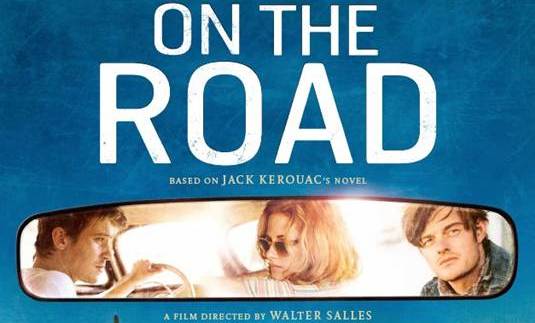The film adaptation of
Jack Kerouac’s generation-defining On The Road is coming out this May, bringing up a lot of
themes of American identity, wanderlust, and existential fulfillment (or lack
thereof). Yet one thing that is often overlooked in readings of On The Road is its problematic portrayal of manhood and
womanhood. In spite of the novel’s nostalgic musings that defined the Beat
generation, its portrayal of relationships between men and women is jarringly
problematic, hierarchical, and abusive. How can we reconcile the book’s
timeless theme of soul-searching with the disturbing relationships between and
portrayals of men and women in 2012?
When Kerouac and Neal
Cassady made their odyssey across America
they were trying to break free from the suburban, pre-Kennedy corporate drone
that represented the norm for American men. Their characters, Sal Paradise and
Dean Moriarty, are in search of independence, ruggedness, and adventure and
often refer to themselves as cowboys. As incarnations of the modern cowboy, the
two men feel a sense of Western independence in the midst of the 1950s suburban
male prototype. They successfully create a new heroic figure that embodied
independence and rugged adventure, a stark contrast to the buttoned up
mid-century American man. Yet Kerouac’s version of the cowboy has a flawed
sense of masculinity that romanticizes and idolizes individualism and
selfishness.
The men’s relationships
with the women in their lives became complicated because they often represented
the social system the men are fighting against and they are characterized in
the novel with domesticity, maternity, and loyalty to relationships and
responsibilities (see Marylou, Camille, and Old Bull’s wife, Jane). Thus, the
women present a threat to Kerouac’s new man of the West and are repeatedly
abandoned and are physically and emotionally abused. Additionally, women’s need
for new gender roles in the 1950s is overlooked in the novel, and they are
neglected the opportunity for their equivalent of a cowboy ethic.
In an attempt to restore
the lost masculinity from the American West in 1950s America, Kerouac’s men
tragically become selfish and self-destructive and simultaneously subjugate the
women in their lives because of their association with this bourgeois domestic
system.
In 2012, how should we
read On The Road and its
revival in film? There are still problematic social expectations for both
genders today, and controversy about sexuality are frequently in the news, but
American culture has come a long way since the novel was published. Is it
possible to read the more positive themes of self-discovery, liberation from
The Man, and adventure in the upcoming film without getting prescribed
negative, dated themes of manhood and womanhood in our historical moment? Can
we separate the idyllic nostalgia for wanderlust from the reality?

No comments:
Post a Comment